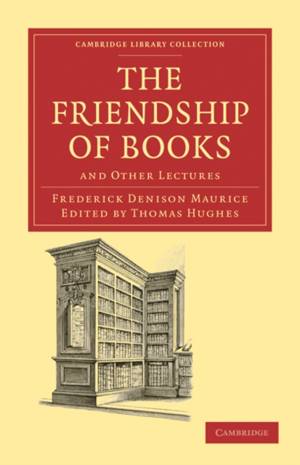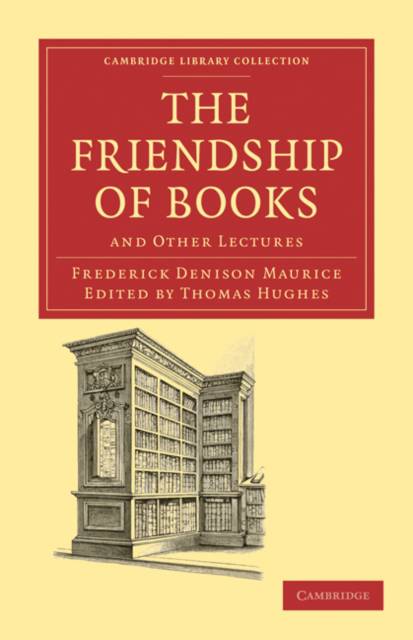
Je cadeautjes zeker op tijd in huis hebben voor de feestdagen? Kom langs in onze winkels en vind het perfecte geschenk!
- Afhalen na 1 uur in een winkel met voorraad
- Gratis thuislevering in België vanaf € 30
- Ruim aanbod met 7 miljoen producten
Je cadeautjes zeker op tijd in huis hebben voor de feestdagen? Kom langs in onze winkels en vind het perfecte geschenk!
- Afhalen na 1 uur in een winkel met voorraad
- Gratis thuislevering in België vanaf € 30
- Ruim aanbod met 7 miljoen producten
Zoeken
Omschrijving
F. D. Maurice (1805-72), the widely published theologian and Christian socialist, served as both Professor of English Literature at King's College, London, and Professor of Moral Philosophy at Cambridge. He was a founding member of the Cambridge Apostles and later founded the Working Men's College in London. Most of Maurice's publications derive from his sermons and lectures. This book serves as an instructional guide to students of literature. The title is taken from the first lecture, in which Maurice argues that books 'help us in knowing ourselves - the part of history of our land, the people we are continually meeting. And any book that does that is surely a friend.' Subsequent chapters include 'On words', 'Ancient history' and 'On Christian civilization' as well as those with a more literary focus, on Spenser, Milton and Burke. The work was published posthumously in 1873; this third edition appeared in 1880.
Specificaties
Betrokkenen
- Auteur(s):
- Uitgeverij:
Inhoud
- Aantal bladzijden:
- 426
- Taal:
- Engels
- Reeks:
Eigenschappen
- Productcode (EAN):
- 9781108031868
- Verschijningsdatum:
- 2/06/2011
- Uitvoering:
- Paperback
- Formaat:
- Trade paperback (VS)
- Afmetingen:
- 140 mm x 216 mm
- Gewicht:
- 535 g

Alleen bij Standaard Boekhandel
+ 157 punten op je klantenkaart van Standaard Boekhandel
Beoordelingen
We publiceren alleen reviews die voldoen aan de voorwaarden voor reviews. Bekijk onze voorwaarden voor reviews.









